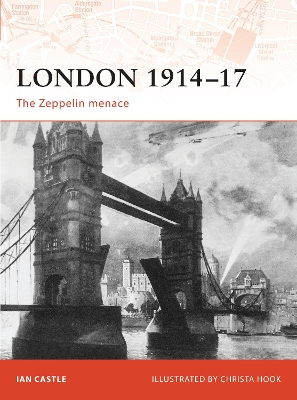Campaign
2 primary works • 3 total works
Book 227
On a sunny May afternoon in 1917, the peace of an English seaside town was shattered when a flight of German Gotha bombers appeared without warning. Twenty-three Gothas had set out to attack London in this first bomber raid, but heavy cloud forced them to target Folkestone and the Shorncliffe army camp instead. It was the start of a new phase of the war aimed at destroying the morale of the British people. London's defences were quickly overhauled to face this new threat, providing the basis for Britain's defence during World War II. This book tells the story of the Gotha and the massive Staaken 'Giant' bomber raids against London.
Book 260
After the British garrison of Fort William Henry in the colony of New York surrendered to the besieging army of the French commander Marquis de Montcalm in August 1757, it appeared that this particular episode of the French and Indian War was over. What happened next became the most infamous incident of the war – and one which forms an integral part of James Fenimore Cooper’s classic novel The Last of the Mohicans – the ‘massacre’ of Fort William Henry. As the garrison prepared to march for Fort Edward a flood of enraged Native Americans swept over the column, unleashing an unstoppable tide of slaughter. Cooper’s version has coloured our view of the incident, so what really happened? Ian Castle details new research on the campaign, including some fascinating archaeological work that has taken place over the last 20 years, updating the view put forward by The Last of the Mohicans.
The first Zeppelin attack on London came in May 1915 - and with it came the birth of a new arena of warfare, the 'home front'. German airships attempted to raid London on 26 separate occasions between May 1915 and October 1917, but only reached the capital and bombed successfully on nine occasions, with much terror inflicted upon the capital's residents. The British organized counter-attacks against German bases on the Continent and developed a defensive system, while the Germans developed newer forms of high-altitude Zeppelins. This book tells the story of Germany's strategic air offensive against Britain, and how it came to be neutralized.


